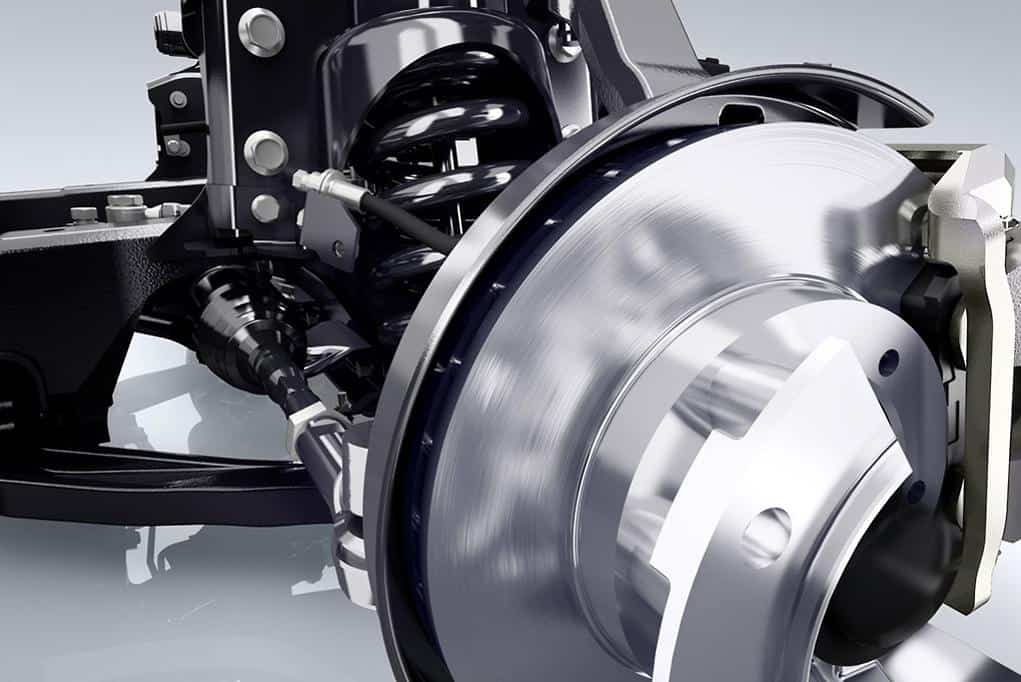Table of Contents
Introduction :
Hydraulic brake hoses play a crucial role in the overall safety and performance of a vehicle’s braking system. Regular inspection and replacement are essential to ensure their integrity and prevent brake system failure, which could compromise vehicle safety.
These hoses are designed to handle high-pressure hydraulic fluids and transmit the hydraulic pressure generated when the driver applies the brake pedal. They must be resistant to deterioration from brake fluid and other environmental factors.
Hydraulic brake hoses should be inspected regularly to prevent leaks, cracks, or other forms of damage that can compromise the effectiveness of the braking system. By prioritizing the maintenance of these hoses, drivers can ensure proper functionality and enhance the safety and reliability of their vehicles.


1.Ensuring Proper Functionality of Brake Hoses
Hydraulic brake hoses are responsible for transmitting the hydraulic pressure generated when the driver applies the brake pedal. These hoses are typically made of reinforced rubber or synthetic materials to withstand high pressures and temperature fluctuations.
They must be flexible to move with the suspension and steering components while maintaining a reliable connection. Regular inspection and replacement of brake hoses are important to prevent potential failures that could compromise the effectiveness of the braking system.
By ensuring the proper functionality of brake hoses, drivers can maintain optimal braking performance and ensure the safety of both themselves and their passengers. Additionally, the inspection and replacement of power steering hoses are also crucial to prevent difficulty in steering and maintain overall vehicle control.
2.Preventing Leaks and Ensuring System Integrity
Brake hoses, as well as oil/fuel delivery hoses, play a significant role in preventing leaks and ensuring the integrity of the respective systems. Oil/fuel delivery hoses are responsible for safely and efficiently transferring oil, fuel, or petroleum-based products.
These hoses are designed to be compatible with various types of oil and fuel, and regular inspection and replacement are necessary to prevent leaks that can lead to engine damage or fuel inefficiency. Leak-off overflow pipes and hoses in diesel engines also help prevent fuel leaks and contamination.
They handle excess fuel or pressure from the fuel system and provide a safety mechanism to prevent excessive pressure build-up. Regular inspection and replacement of these components ensure their proper functioning, prevent fuel leakage, and maintain the integrity of the fuel system.
3.Safety and Reliability
Various components related to fuel systems, such as fuel injection pipe assemblies and fabricated pipe accessories, require regular inspection and replacement to ensure safety and reliability. Fuel injection pipe assemblies are critical for the proper functioning of the engine.
They regulate fuel pressure, aid in fuel atomization, and prevent leaks. Regular inspection and replacement of these assemblies prevent potential leaks that could lead to engine malfunctions.
Fabricated pipe accessories, such as pipe spools, expansion joints, and transition fittings, also need inspection to ensure secure and reliable connections in piping systems. Proper functioning of fuel injection pipe assemblies and fabricated pipe accessories is essential for maintaining the integrity of the fuel system, preventing leaks, and ensuring the safety and reliability of the vehicle.
4.Extended Component Lifespan
Rigid Fuel/Oil Delivery Pipes:
These pipes transport fuel or oil throughout the vehicle. Regular inspection and replacement prevent corrosion or damage that can occur over time, extending the lifespan of the components.
Teflon Hoses:
Teflon hoses offer high chemical resistance and are commonly used in various automotive applications. Regular inspection and replacement prevent degradation and maintain their reliability.
5.Overall Vehicle Performance
Brake Pipe:
The brake pipe connects the master cylinder to the brake calipers. Regular inspection and replacement prevent brake fluid leaks and ensure optimal brake performance.
Air Brake & Compressor Hoses:
These hoses are crucial for the air brake system in heavy vehicles. Regular inspection and replacement prevent air leaks and maintain proper braking efficiency.
Water Coolant Pipes:
Regular inspection and replacement of these pipes ensure the proper flow of coolant, preventing engine overheating and maintaining optimal performance.
Conclusion :
regular inspection and replacement of hydraulic brake hoses and related components are of utmost importance to ensure the safety, reliability, and performance of a vehicle. By addressing any potential issues proactively, drivers can avoid costly repairs, prevent accidents, and enjoy peace of mind on the road. Make it a priority to include these inspections in your vehicle maintenance routine, and consult a professional if you notice any signs of damage or wear on these critical components.


